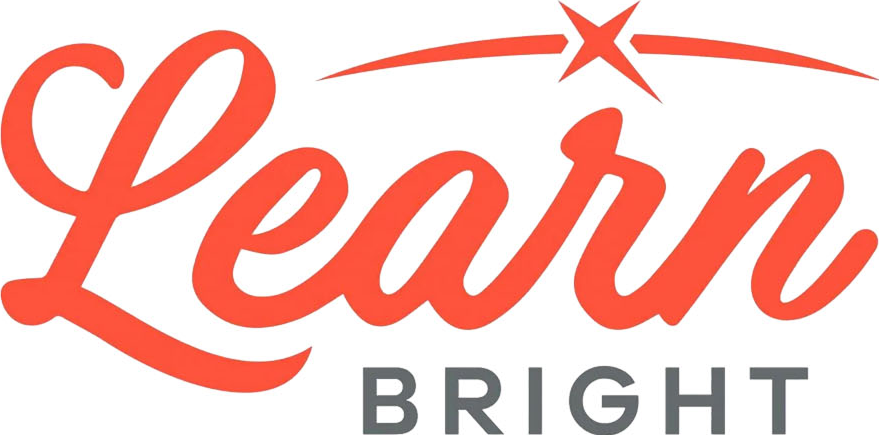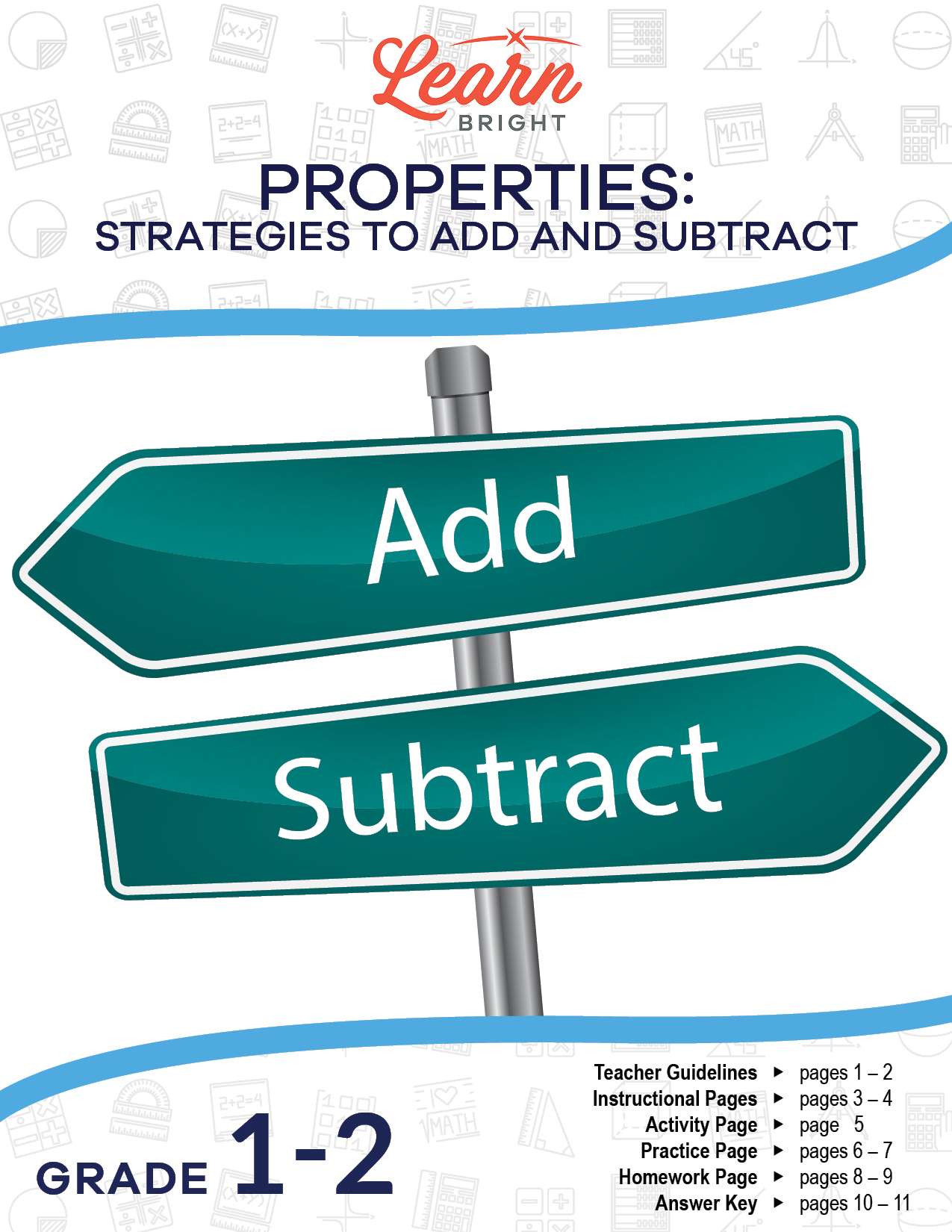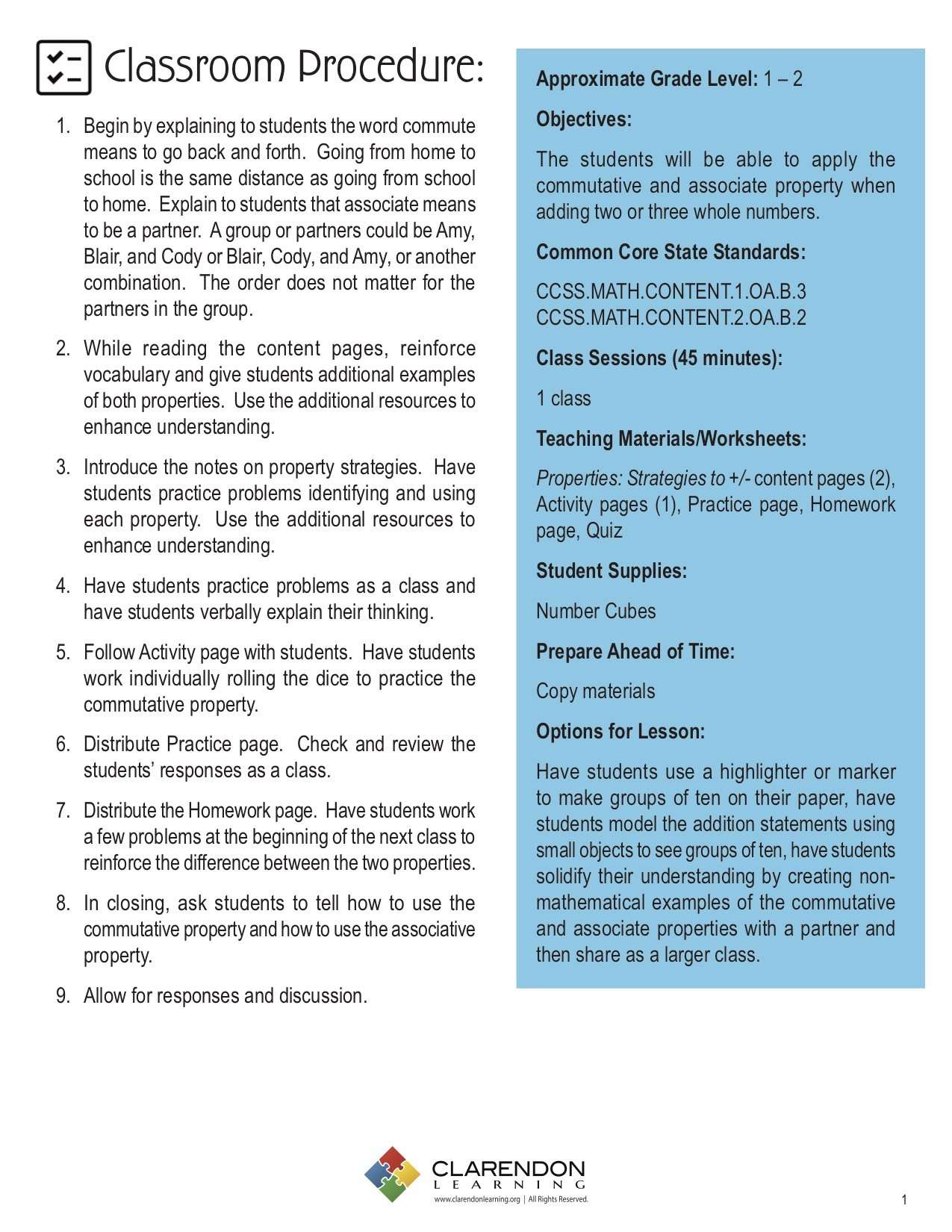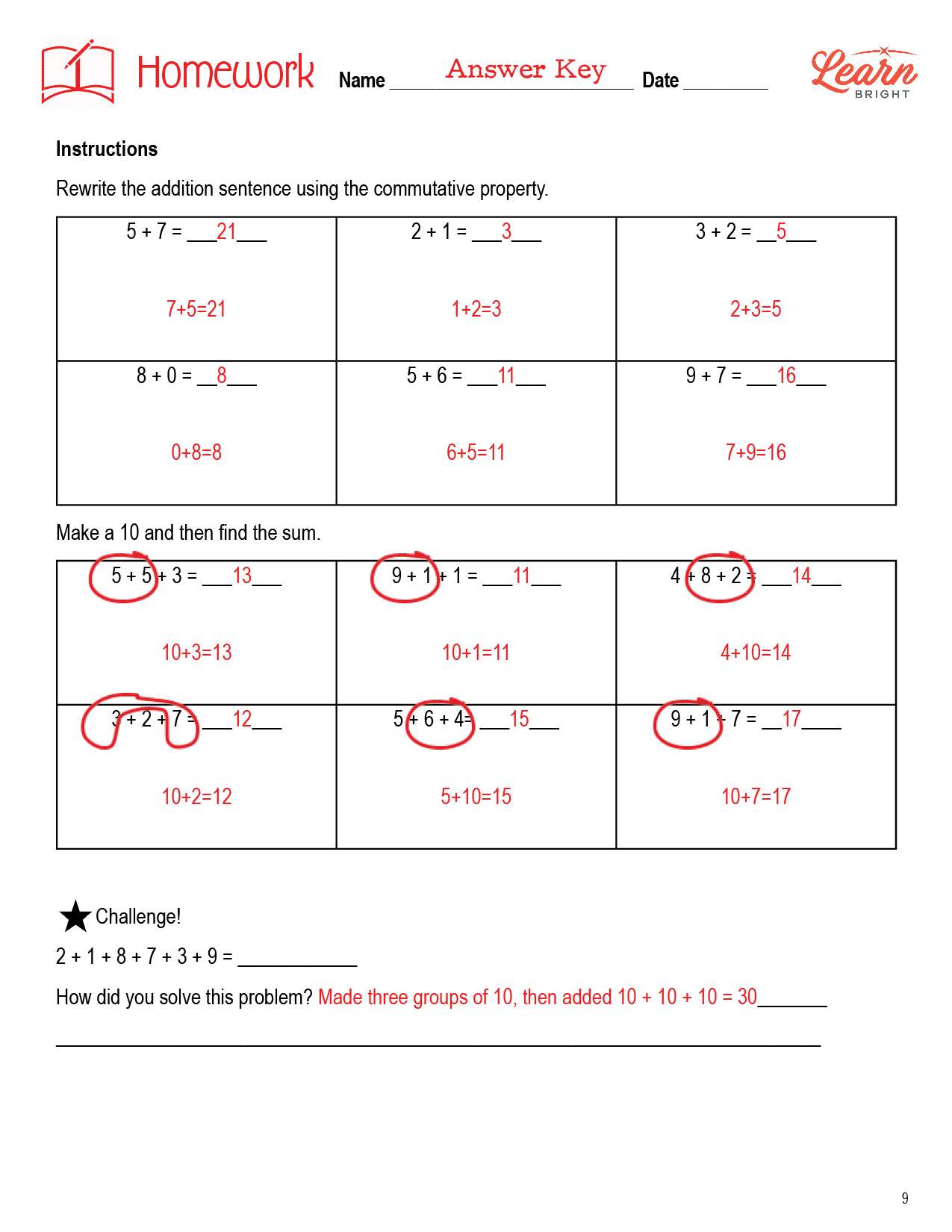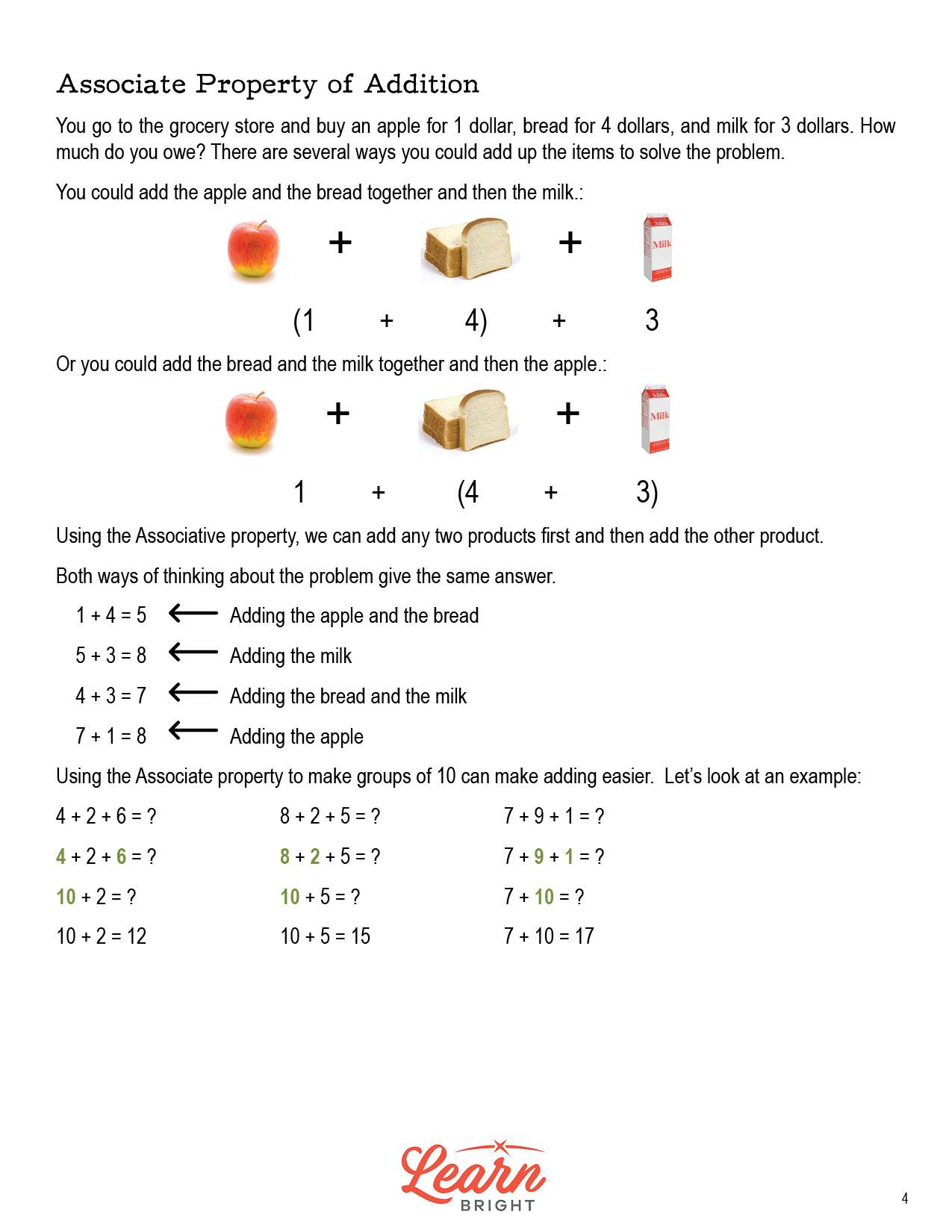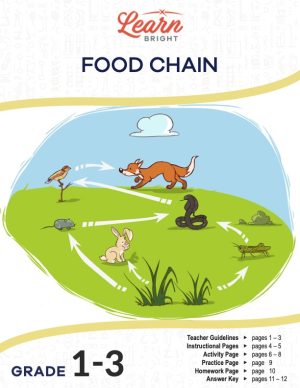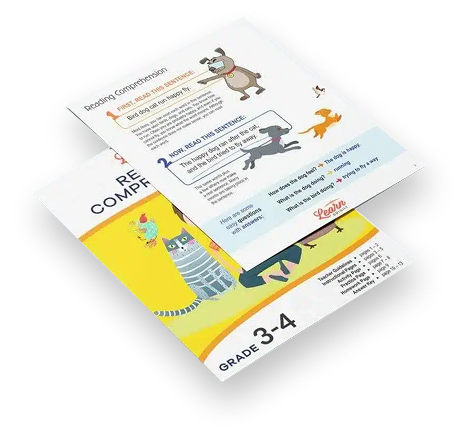Description
What our Properties: Strategies to Add and Subtract lesson plan includes
Lesson Objectives and Overview: Properties: Strategies to Add and Subtract introduces students to the commutative and associative properties as they relate to addition and subtraction of whole numbers. This lesson is for students in 1st grade and 2nd grade.
Classroom Procedure
Every lesson plan provides you with a classroom procedure page that outlines a step-by-step guide to follow. You do not have to follow the guide exactly. The guide helps you organize the lesson and details when to hand out worksheets. It also lists information in the blue box that you might find useful. You will find the lesson objectives, state standards, and number of class sessions the lesson should take to complete in this area. In addition, it describes the supplies you will need as well as what and how you need to prepare beforehand. The only supplies you will need for this lesson are number cubes. To prepare for this lesson ahead of time, you can gather the cubes and copy the handouts.
Options for Lesson
Included with this lesson is an “Options for Lesson” section that lists a number of suggestions for activities to add to the lesson or substitutions for the ones already in the lesson. One suggestion is to have students use a marker or highlighter to make groups of ten on their paper. You could also have students model addition statements using small objects to visualize the groups of ten. If you want to help students solidify their understanding of the lesson concepts, you can have them create non-mathematical examples of the commutative and associative properties with a partner and share them with the class.
Teacher Notes
The teacher notes page includes lines that you can use to add your own notes as you’re preparing for this lesson.
PROPERTIES: STRATEGIES TO ADD AND SUBTRACT LESSON PLAN CONTENT PAGES
Properties: Strategies to Add and Subtract
The Properties: Strategies to Add and Subtract lesson plan includes two pages of content. The lesson begins by explaining that, when you add two numbers, the order that you add them in does not change the sum (the answer to an addition problem). For example, 2 + 4 and 4 + 2 both have a sum of 6. 1 + 2 and 2 +1 both have a sum of 3. Changing the order of the addends doesn’t change the answer.
Associate Property of Addition
the lesson then goes over a few more examples. One of these states that you buy three items from the grocery store, one that is $1, another that is $4, and a final one that is $3. In order to find out how much you owe in total, you can add the cost of each together in any order. (1 + 4) + 3 is the same as 1 + (4 + 3). We call this the associative property.
The lesson closes by showing that we can use this property to make groups of 10, making addition easier. For example, for the problem 4 + 2 + 6, we can first add 4 + 6 to get 10, and then add 2 to get a final sum of 12. The lesson includes several other examples to illustrate this.
PROPERTIES: STRATEGIES TO ADD AND SUBTRACT LESSON PLAN WORKSHEETS
The Properties: Strategies to Add and Subtract lesson plan includes four worksheets: an activity worksheet, a practice worksheet, a homework assignment, and a quiz. You can refer to the guide on the classroom procedure page to determine when to hand out each worksheet.
ROLL AND ADD ACTIVITY WORKSHEET
The activity worksheet asks students to solve addition problems using two methods: roll and add and the commutative property. To find the numbers that they will add, the students will roll the number cube. They will write the rolled numbers on the “roll and add” side of the worksheet, add, and then write the equation using the commutative property.
FILL IN THE BLANKS PRACTICE WORKSHEET
For the practice worksheet, students will complete two short exercises. For the first, they will fill in the blanks (the sums) for different addition expressions. And for the second, they will look at addition problems, make a 10 by circling two numbers that make 10, and then find the total sum.
PROPERTIES: STRATEGIES TO ADD AND SUBTRACT HOMEWORK ASSIGNMENT
The homework assignment asks students to first rewrite the addition sentences using the commutative property, showing their work. Next, they will make a ten and then find the sum for various expressions. Finally, they will answer a special challenge addition problem, where they must add six different numbers together! They will also explain how they solved that problem.
QUIZ
This lesson also includes a quiz that you can use to test students’ understanding of the lesson material. For the quiz, students will match the expressions with the same sums.
Worksheet Answer Keys
This lesson plan includes answer keys for the practice worksheet, the homework assignment, and the quiz. If you choose to administer the lesson pages to your students via PDF, you will need to save a new file that omits these pages. Otherwise, you can simply print out the applicable pages and keep these as reference for yourself when grading assignments.
